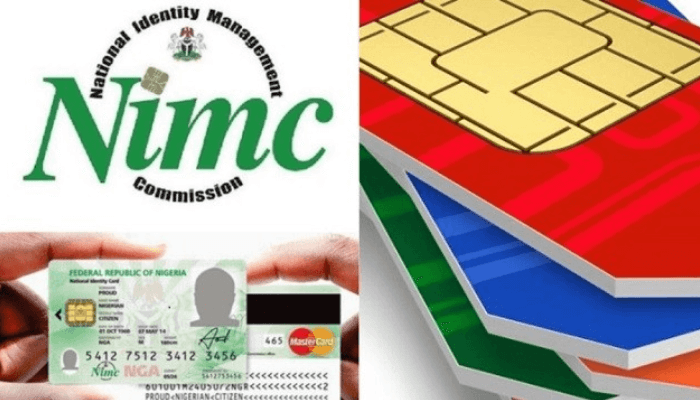Telecom providers have started disconnecting about 66 million phone lines nationwide in an effort to comply with the federal government’s mandate regarding the National Identification Number (NIN)-Subscriber Identity Module (SIM) linkage.
Following several extensions and alerts to Nigerians to adhere to the policy intended to enhance national security and expedite the identification process, this step was taken.
Recall that, as of March 2024, the Nigerian Communications Commission (NCC) reported that, of the 219 million active lines across mobile networks including as MTN, Glo, Airtel, and 9mobile, 153 million were already linked to NIN. Approximately 66 million phone lines could be disconnected as a result of this.
Between July 28 and 29, millions of lines were momentarily stopped because to unverified NINs, which resulted in significant disruptions across the nation.
According to financial statistics from the first half of 2024, MTN Nigeria and Airtel Africa blocked 13.5 million lines for violating the NIN-SIM connecting requirement.
8.6 million lines had been stopped, according to MTN, and 8.7 million subscribers of Airtel had finished the verification process.
To prevent being permanently disconnected, impacted consumers are advised by telecom companies like as MTN, Airtel, Glo, and 9mobile, to link their NIN.
To complete the procedure, subscribers whose lines have been deactivated can still reconnect by going to any of the telecom companies’ service centers or NIMC offices.
Originally released by the NCC in partnership with the National Identity Management Commission (NIMC), the regulation requires all Nigerian mobile phone users to link their SIM cards to their unique NIN.
The government launched the program in 2020 as a part of its attempts to curb fraud, insecurity, and other illegal activities that were made possible by poorly or unregistered phone lines.
The NCC stated in a statement in August that it anticipated that no SIM card would remain active without a validated NIN starting on September 15 after the agency has extended the deadline several times since December 2023.
Confirming the disconnections, an NCC representative said that non-compliant lines would not be allowed to use mobile data services, send messages, or make calls until the linking process was finished.
The grace period has ended, and we will disconnect anyone who disobeys. The previous time we extended was due to a misunderstanding among Nigerians that the NCC desired to frustrate the August 1 protest.”
The policy aims to establish a central database that can be used to track criminal activities, authenticate identity, and improve digital financial inclusion, he said, defending the NIN-SIM linkage as essential to national security.
It has been determined that unregistered and unlinked SIM cards are commonly utilized as instruments in the commission of crimes like financial fraud, terrorism, and kidnapping. He continued, “The NIN-SIM linkage is a crucial step in protecting the country and guaranteeing the integrity of our communication infrastructure.
The government has upheld its stance on the regulation in the face of criticism, stating that noncompliance could result in citizens losing access to essential mobile services.
Following a tour of many telecom hubs, Adeolu Ogungbanjo, the president of the National Association of Telecommunications Subscribers, responded by describing the NIN-SIM connection procedure as appalling.
Ogungbanjo pleaded with the NCC to consider extending the deadline in view of the technical issues that beset the registration process the previous week. “After a series of extensions, I think they can still do that for maybe a week, but NCC deserves praise,” he remarked.
